Imagine a restaurant where the chef only offers their food preferences and don't allow any dietary alternatives. The menu never changes even if consumer tastes chang. The restaurant is often short on staff, resulting in long waits. The waitstaff – they're slow to tend to customers, unfriendly, and don’t care about the falling numbers in return customers.
Sounds like the nightmare restaurant experience you had, right?
As you suspect, this restaurant won’t be in business much longer. Today's consumers expect tailored delight and value throughout the experience, regardless of whether they are leveraging an online service or dining in a restaurant.
This isn't just a Business to Consumer (B2C) reality – it applies to the Business to Business (B2B) world! According to a Rocketlane survey, 78% of post-sale professionals reported that one of their top goals for 2023 was improving customer experience.
Clients want the absolute best for themselves and expect their providers to be reliable, consistent, and meet all their needs. And that goes for professional services firms, too.
To come out on top in such a competitive market, professional services firms need to make it their mission to understand their client's unique needs, offer solutions that are customized and delivered promptly, and build strong relationships based on trust and exceptional service. By making the client the center of everything they do, these firms can create an unforgettable experience that exceeds their clients' expectations. And that ultimately leads to happier, more loyal clients and long-term success.
Like a top-notch restaurant that aims to create an unforgettable dining experience, professional services firms should strive to provide an exceptional client experience.
In this article, I will dive into how these firms can make that happen by embracing a client-centric culture and putting their clients first.
1. Encourage a client-first mindset
When building a client-centric culture, one of the critical things for professional services firms is to encourage team members to put the clients first. Every team member must understand that the client's needs and satisfaction should be at the forefront of everything they do.
To cultivate a client-centric mindset, team leaders can start by setting clear expectations and goals that prioritize the client. Emphasizing the importance of empathy can also go a long way in helping team members better understand and meet each client's unique needs: 54% of customers say empathy in service interactions is essential for their experience.
Another effective way to encourage a client-first mindset is by promoting a culture of continuous improvement. Encourage team members to regularly seek client feedback and take it as an opportunity to learn and grow; it helps strengthen the relationship with the client and fosters a sense of ownership and accountability within the team.
By instilling a client-first mindset within the team, professional services firms can set themselves apart from the competition and build long-term, mutually beneficial relationships with their clients.
2. Emphasize effective communication
Effective communication is the pillar that ensures smooth interactions between clients and team members. To truly cater to your client's needs, it's vital to prioritize clear and regular communication.
One of the critical aspects of effective communication is active listening. Understanding your client's concerns and expectations establishes trust and strong relationships. Use tools and techniques to gather client feedback and insights, which will help tailor your services to their exact requirements.
Additionally, open and honest dialogue within your team is crucial. Encourage team members to share information and updates regarding client projects: it enables a collaborative approach and ensures everyone is on the same page. Regular meetings, both internally and with clients, can also foster effective communication and strengthen relationships.
Effective communication involves verbal exchanges, non-verbal cues, and written interactions. Be mindful of your tone, body language, and responsiveness to ensure a seamless flow of information. Professional service teams can create a client-centric culture that fosters trust, efficiency, and success by emphasizing effective communication.
3. Foster collaboration and knowledge-sharing
Approximately 60% of customers feel they are communicating with separate entities within the same company–that is, they can perceive a lack of cohesion and seamlessness.
In professional services, enabling internal collaboration and knowledge-sharing is like planting the seeds for client-centricity. When your team members work together and share their expertise, it creates a ripple effect that benefits your clients and your entire organization.
Imagine a workplace where employees freely exchange ideas, best practices, and lessons learned. Open communication fuels innovation, propelling your team to deliver exceptional results for clients. By encouraging collaboration, you tap into a collective intelligence that can solve problems and uncover new opportunities.
One way to foster internal collaboration is by creating spaces and platforms that encourage knowledge-sharing. Whether it's a shared document repository, a communication tool, or regular team meetings, these avenues enable employees to exchange ideas and build on each other's insights. By removing silos and promoting cross-functional collaboration, you're leveling the playing field for everyone to contribute their unique perspectives.
Let's break down the barriers and build a culture where knowledge flows freely. Remember, by fostering internal collaboration and knowledge-sharing, you're strengthening your team and setting the foundation for a client-centric approach that can propel your professional services to new heights.
4. Implement client feedback mechanisms
Client feedback is essential for building a client-centric culture. Staying tuned to their client's needs and preferences ultimately improves customer satisfaction and relationship building.
There are various ways to gather client feedback, including surveys, feedback forms, and regular check-ins. Encouraging clients to provide honest feedback enables teams to identify improvement areas, address issues promptly, and continuously enhance service delivery.
However, more than simply collecting feedback is required. It is crucial to act on the feedback received. By actively responding to client feedback and incorporating their suggestions into your processes and practices, you show that you value their input and are committed to delivering exceptional service.
Regularly analyzing and reviewing client feedback can also uncover patterns and trends, such as areas where they excel and areas that need improvement. These insights, in turn, enable teams to align service delivery with client expectations and make informed decisions to enhance the overall client experience.
Organizations can foster stronger client relationships and improve their services by actively seeking and acting upon client feedback.
5. Personalize client experiences
Brands that lead with personalization improve customer loyalty 1.5x more effectively than brands with poor personalization.
A crucial aspect of being client-centric is personalizing client experiences. Gone are the days of one-size-fits-all solutions. In today's competitive market, clients expect services tailored to their unique requirements.
Personalization starts with understanding our clients on a deeper level. It's about taking the time to listen and learn about their goals, challenges, and aspirations. Armed with this knowledge, we can then deliver solutions specific to their needs, offering real value and making them feel understood and valued.
Personalization should be consistently integrated into every touchpoint, from the first interaction to post-service follow-ups. It could mean addressing clients by name, remembering past conversations with them, and anticipating their future needs. Doing so creates a sense of trust and builds long-lasting relationships based on mutual understanding.
For our professional services teams, personalizing client experiences is not just a buzzword; it's a commitment to delivering exceptional customer service. It's about putting ourselves in their shoes and asking, "How can we go above and beyond to make their experience truly memorable?"
This practice helps us enhance the client's journey and differentiate ourselves from our competitors.
6. Invest in technology and innovation
In today's technology-driven world, embracing digital tools and innovative solutions is essential for professional services firms aiming to deliver exceptional client experiences. Technology has revolutionized how we work, and adopting some of the latest advancements can enhance efficiency and client satisfaction. According to this Zendesk survey, 73% of customers want to be able to move seamlessly between channels.
Implementing reliable project management systems, communication tools, and collaboration platforms can streamline processes and ensure seamless client communication. These technologies enable teams to work together more effectively, improving project delivery and client experience.
Furthermore, embracing innovation and staying ahead of industry trends demonstrates expertise and allows professionals to provide valuable insights and solutions to clients. This could involve adopting emerging technologies like automation or artificial intelligence to deliver more sophisticated and tailored services.
By investing in technology and innovation, professional services teams can create a competitive advantage and differentiate themselves in the market. Clients will appreciate the advanced tools and systems in place, ensuring a positive experience throughout their engagement. So, don't hesitate to explore new technologies and be at the forefront of innovation in your industry!
Client centricity will be your differentiator
In the professional services business (or any business), standing out from the competition is crucial. One surefire way to achieve that is by embracing client-centricity. By placing the needs and desires of your clients at the forefront of everything you do, you can create a unique and personalized experience that your competitors can't replicate.
Client centricity goes beyond just providing excellent service; it's about building lasting relationships and exceeding expectations every step of the way. When clients feel genuinely valued and understood, they are likelier to become loyal advocates and refer your services to others. So, make client-centricity your crucial differentiator and watch your business thrive.
About the author

Emilia D’Anzica is the Founder and Managing Partner of Growth Molecules™, a management consulting firm focused on protecting and growing revenue. The company aims to help organizations increase profit while maximizing customer value. Emilia is also on several advisory boards globally and an active contributor to the Forbes Council. She is a part-time Adjunct MBA Marketing Metrics Professor at Saint Mary’s College of California.







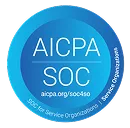


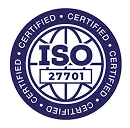









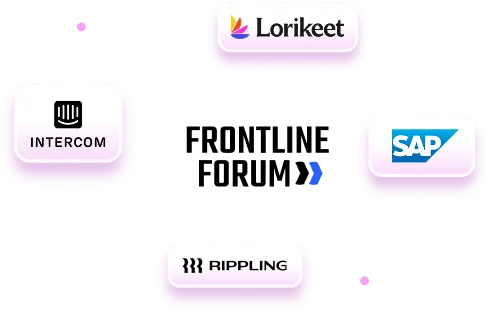
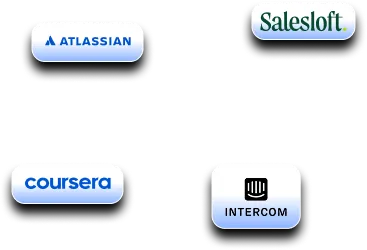


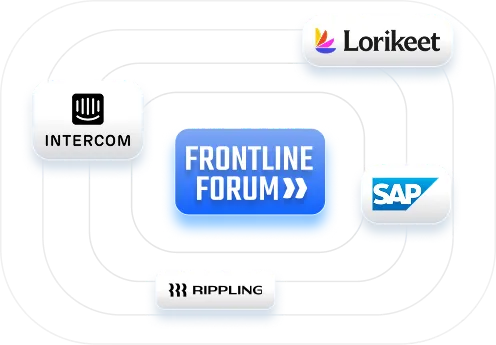
.webp)